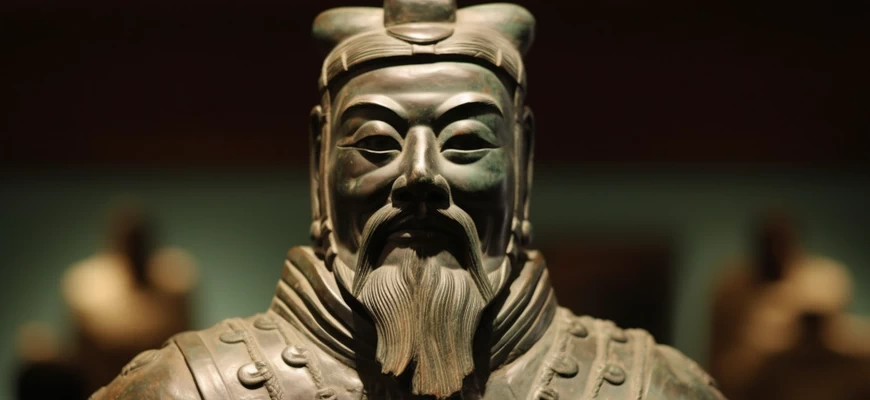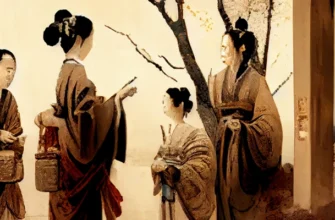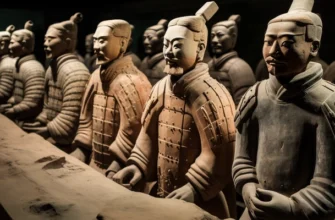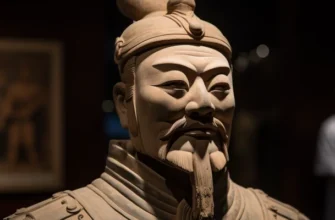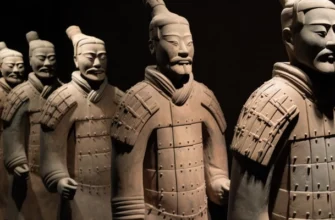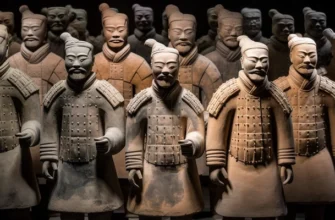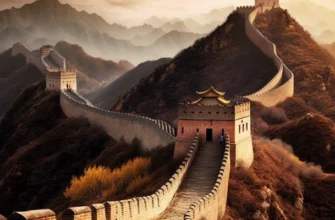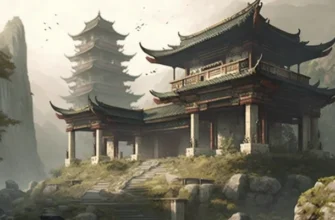The Zhou Dynasty (1046-256 BC) is the longest dynasty in Chinese history, divided into the Western and Eastern Zhou Dynasties. During its reign, important cultural and social changes took place, and philosophy and science developed. The Zhou Dynasty left a significant impact on Chinese culture and politics, and its legacy is still felt to this day.
- History of the Zhou dynasty
- Origin and beginning of the reign
- Splitting into Western and Eastern Dynasties
- The fall and end of the dynasty
- Society and culture in the Zhou Dynasty
- Feudal system and government
- Development of science, philosophy, and literature
- Religious and social customs
- The influence of the Zhou Dynasty on modern Chinese culture
- Conclusions
History of the Zhou dynasty
The Zhou Dynasty (1046-256 BC) was the longest dynasty in Chinese history, divided into Western and Eastern Dynasties. The founder of the dynasty was Wang Wu, who overthrew the last ruler of the Shang Dynasty. During the reign of the Zhou, important cultural and social changes took place, there was a split into two parts, and in the end the dynasty was overthrown by the Qin Dynasty. The Zhou Dynasty left a significant impact on the culture, philosophy, and social customs of China.
Origin and beginning of the reign
The Zhou Dynasty was born after the overthrow of the last ruler of the Shang Dynasty in 1046 BC. The founder of the dynasty was Wang Wu, who was related to the previous dynasty. Wang Wu established his rule in the central part of China and organized the society according to the feudal system, where the leadership of the state was divided between departments, and titles and rights were passed down from generation to generation within the family. This became the basis for the further development of the Chinese empire.
Splitting into Western and Eastern Dynasties
In the middle of the eighth century BC, the Zhou Dynasty split into two parts – the Western and Eastern Dynasties. The Western Zhou Dynasty became the founder of the Chu Kingdom, and the Eastern Zhou Dynasty became the Zhou State, which continued to rule in northeastern China. This led to the weakening of the power of the central state and the development of the feudal system in China. Both dynasties experienced hardships and conflicts, but the Eastern Dynasty continued to rule until 256 BC, when it was overthrown by the Qin Dynasty.
The fall and end of the dynasty
The fall of the Zhou dynasty began in the eighth century BC and was associated with the split into Western and Eastern dynasties, the weakening of the central state, and the spread of the influence of feudal landowners. In the fourth century BCE, the Zhou state experienced the greatest upheavals associated with the growing power of rival states and internal conflicts. In 256 BC, the Zhou Dynasty was overthrown by the Qin Dynasty, which became the new imperial dynasty in China. Nevertheless, the Zhou Dynasty left a significant impact on the culture, philosophy, and social customs of China, and is today considered an important stage in the history of Chinese civilization.
Society and culture in the Zhou Dynasty
The society of the Zhou Dynasty was divided into feudal states, which had great independence in managing their lands. The culture of the Zhou Dynasty developed under the influence of philosophical movements such as Confucianism, Taoism, and Legalism. This period was also marked by the development of iron tools, wooden and bronze artwork, and luxurious ceramics. The written word, especially calligraphy, was also developed during this period. In general, the Zhou Dynasty made a huge contribution to the formation of Chinese civilization, which continues to be felt to this day.
Feudal system and government
The feudal system was the basis of the socio-economic organization of the Zhou Dynasty. It provided for the division of the country into small states, ruled by feudal lords – landowners with their own troops and administrative system. This led to constant wars between states and intrigues between landowners.
The central government of the Zhou Dynasty controlled only a limited territory and had limited authority. The Zhou kings were only formal rulers, and the real power was held by landowners-feudal lords. Thus, the state was very weak, which led to constant power struggles between feudal states and growing internal conflicts.
Although the Zhou Dynasty was weak, its rule was an important stage in Chinese history, as it gave rise to the development of philosophical schools, culture, and art that became the foundation of Chinese civilization.
Development of science, philosophy, and literature
The Zhou Dynasty was an important period in the history of Chinese philosophy, literature, and science. This time saw the emergence of such prominent thinkers as Confucius, Lao Tzu, and Mo Tzu, who gave impetus to the development of moral and ethical philosophy.
Cultural life was also highly developed during the Zhou Dynasty. Many important literary works were created, such as the Book of Songs, the Book of Stories, and the Book of Rituals. These works were important in shaping Chinese culture.
The Zhou Dynasty was also an important period in the development of science. A major breakthrough was made in the development of mathematics and astronomy, which played an important role in shaping China’s scientific heritage.
All these achievements became the basis of Chinese civilization and influenced the development of world culture.
Religious and social customs
The Zhou Dynasty had a religious system based on spirits that could influence the fate of individuals and the state. A whole system of rites and rituals was developed to connect people with the spiritual world. An important religious figure of the time was Jichen, the god of the earth and the harvest.
The social structure was built on a system of feudal hierarchy, where the top of the power belonged to the king and his family. Power was divided among large feudal lords who were obliged to pay tribute and serve the king. The caste system was also established, which limited social mobility and ensured a certain order in society.
Important social customs were visits and gifts between feudal lords, which strengthened ties between them. Also during this period, various types of crafts and trades emerged, which ensured the development of the economy and an increase in the number of laborers.
All of these social and religious customs became an important part of Chinese culture and are still preserved today.
The influence of the Zhou Dynasty on modern Chinese culture
The Zhou Dynasty left a significant impact on modern Chinese culture. For example, many of the religious and social customs that were formed during the Zhou reign have survived to this day and are still in use in modern China. The Zhou dynasty also made a significant contribution to the development of Chinese science, philosophy, and literature. Many of the ideas that were invented and formed during this period remain relevant and important today. For example, the concepts of morality and ethics that were developed during this period are still used in Chinese culture. The Zhou Dynasty was also a period of significant development of Chinese music, art, and architecture, and made a significant contribution to the formation of modern Chinese culture.
Conclusions
The Zhou Dynasty occupies an important place in Chinese history. For more than 800 years of its rule, it exerted a significant influence on China’s culture, science, philosophy, and politics. The development of the feudal system, the flourishing of art and science, religious and social customs that were formed during the Zhou period left a deep mark on Chinese culture.
Studying the history of the Zhou Dynasty is essential to understanding the formation of modern China. This period formed the basis for many of the features and characteristics of Chinese culture that we observe today. Knowledge of the history of the Zhou Dynasty will help to better understand China’s cultural heritage, its impact on the world, and the development of Chinese civilization.
